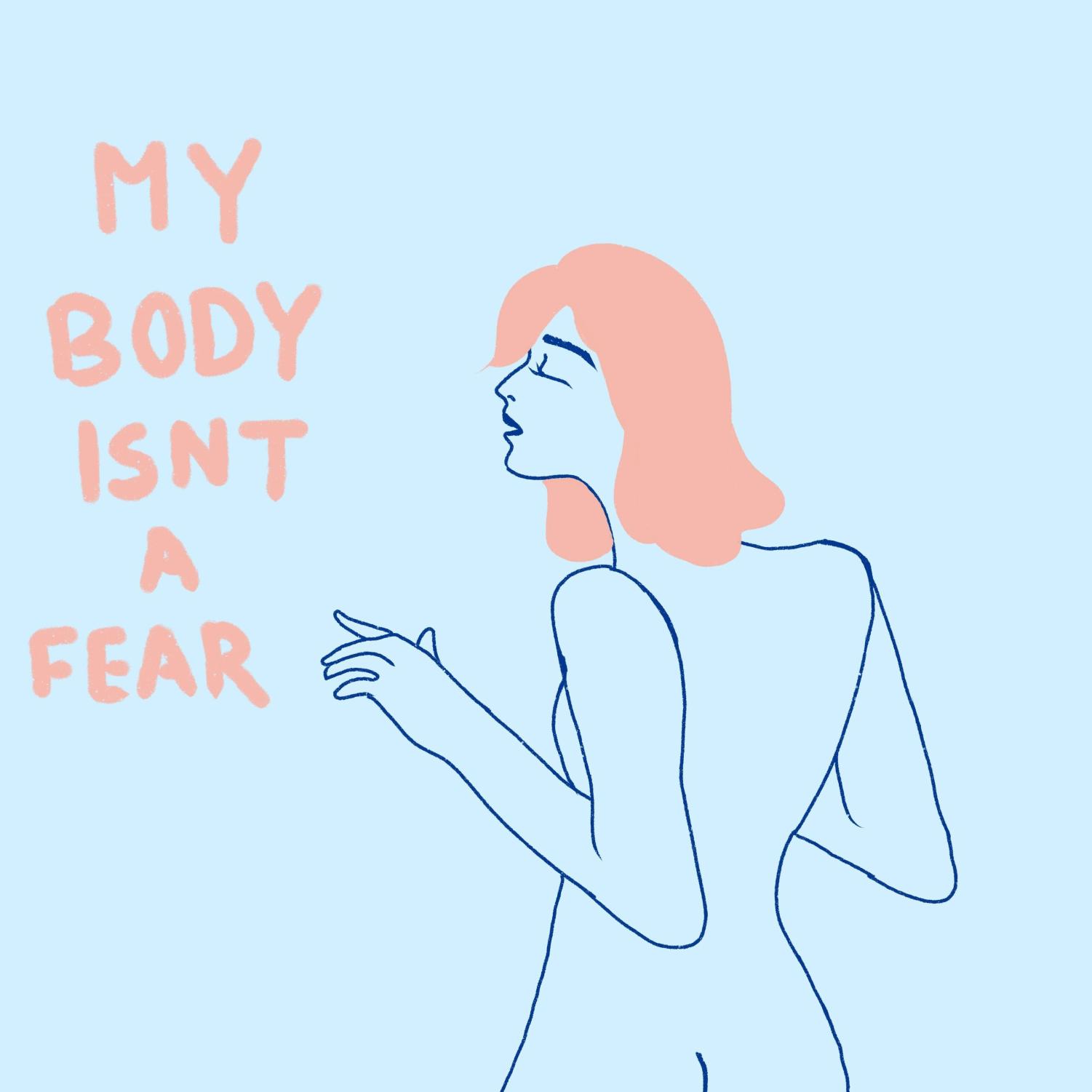Opinion | It’s time to get over your fear of the female body


In summer 2019, I worked at a sleepaway camp known for its connection to counterculture and liberalization. After noticing that many of the female counselors chose not to shave their body hair, I decided to experiment with my own grooming habits. It took some time, but soon I learned to feel confident in newly hairy skin. I remember wishing that I had felt this way sooner.
Upon leaving the camp, I immediately began shaving again. I was nervous about how people in the outside world would react to my body. As young women, we are constantly in conflict between how we want to take care of our bodies and how others want us to take care of our bodies. Finding a balance between personal choice and external constructs is exhausting.
At the start of quarantine in spring 2020, I chose to follow my own conscience and experiment with my body once more. I haven’t shaved since. In the meantime, I have received odd looks, words of disapproval from family members and judgment from friends who I never thought would care so much about what I choose to do with my body. This makes me wonder, why is it bad for me to simply not take action, to let my body grow the way it’s meant to? Even more, why is body hair okay for men, but not for me?
In all of this, I’ve learned that we — men, women and children — are taught from a young age to fear the female body. As women, we are constantly made to be uncomfortable in our own skin. Dress codes disproportionately affect girls because our flesh is sexualized. Public breast feeding is shamed because our body parts are intrinsically tied to sex. Reproductive health is carefully controlled because our bodies are only valued for the life they can create. Sexualized, oppressed and regulated — it is easy to understand that society shapes our understanding of our bodies. Still, it is much harder to pinpoint how this happens, and even more difficult to resist these ideas.
The central cause of this fear is the omnipresent misogyny that instills the female body as a liability. Our bodies are characterized by the desires — and expectations, met and unmet — of men. Women’s bodies are chess pieces in the game of the patriarchy. They are weapons for religious fanatics. They are reasons for sexual misconduct. They are not our bodies anymore—they belong to everyone else.
The feeling of discomfort in our own bodies is not distinct to women as individuals. It’s a universal sensation, present in countless places. Menstruation is a natural cycle that many women are uncomfortable — even ashamed — to share with others. It is surrounded by stigmas and taboos. When I first got my period in seventh grade, I was too confused and afraid to even tell my own mom, and instead scoured the house for tampons and pads in secrecy. Young girls are taught to keep their periods a secret, that they are something shameful and private that should not be discussed unless necessary.
Breastfeeding is another natural process. It provides crucial sustenance for children, yet it is shunned in public settings because society cannot dissociate the breast from a sexual object. Social stigmas surrounding breastfeeding imply that people’s preference to not be distracted by the female body is more important than providing nutrients to an infant, simultaneously insinuating that the use of breasts in any form is an intrinsically sexual act.
It’s also well known that school dress codes are sexist — they disproportionately target young girls, forcing them to comply with greater standards of attire than their male peers. These rules often exist to remove any distractions for boys and men, suggesting that a variety of female body parts, including shoulders, legs and breasts, are sexually explicit and shameful. If a girl’s outfit is deemed provocative, she is sent to the principal’s office, to the nurse or home to change. We must forfeit our education to protect others, specifically men, from our bodies.
Society cannot separate our bodies from sexual objects. We must mitigate and minimize our physical selves or else give rise to inappropriate distractions. The men who engage with these “distractions” are not to blame — we are. We thus internalize the idea that our bodies are an inconvenience and that if our flesh provokes unwanted attention, we must be the issue. But are we really to blame?
Moreover, legal controversies surround our bodies because they are not merely ours — they are political playgrounds. They belong to the people. Conservative politicians are constantly working against female autonomy by creating more and more restrictions that prevent access to abortion. Recently, state legislatures have been pushing for a significant amount of legislation that restricts abortion, with Oklahoma even passing a near-total ban on abortion.
Access to reproductive healthcare, such as contraception, abortion and pregnancy services, is carefully regulated. Our reproductive systems can’t be placed in our own hands. Once again, it is the supposed right of everyone — especially men — to decide what we get to do with our bodies, and whether or not we choose to birth a child.
With all of this in mind, it is time for everyone, men and women both, to recognize the omnipresent sexualization of women’s bodies. More importantly, we must strive to understand how these misogynist ideas emerged in the first place, and work consciously to undo these ways of thinking. Women are not to blame for being born in a body that everyone sees as an object designed for sex. The fault lies within societal institutions that perpetuate and encourage this theme, and we must do our best to fight back.
We must take back the rights to our bodies. We owe it to ourselves — to the countless women who genuinely believe that their body is someone else’s, to the women of color who suffer from further sexism and racism, to the young girls afraid to go to school on their period — to resist the misogyny. Our bodies are natural. They are beautiful. They are strong.
Sarah Liez writes primarily about gender issues and social phenomena. Write to her at sjl88@pitt.edu.
Recent Posts
SGB introduces new governing code bill and addresses rumors of ICE on campus
At its weekly meeting at Nordy’s Place on Tuesday, Student Government Board introduced an omnibus…
Opinion | School should be in the summer
Although this may be controversial, I believe that from this data, it is evident that…
Weathering the storm: Pittsburgh teams have tackled some of the toughest environments
The end of the year in western Pennsylvania is always marked by two things —…
Notes From an Average Girl // Notes on Book Banning
In this edition of Notes From an Average Girl, senior staff writer Madeline Milchman writes…
To Be Honest // Yup, it is that damn phone
In this edition of To Be Honest, staff writer Evin Verbrugge writes about her phone…
Meaning at the Movies | Portraying Toxic ‘Adolescence’
In this edition of Meaning at the Movies, staff writer Lauren Deaton explores the mini-series…
